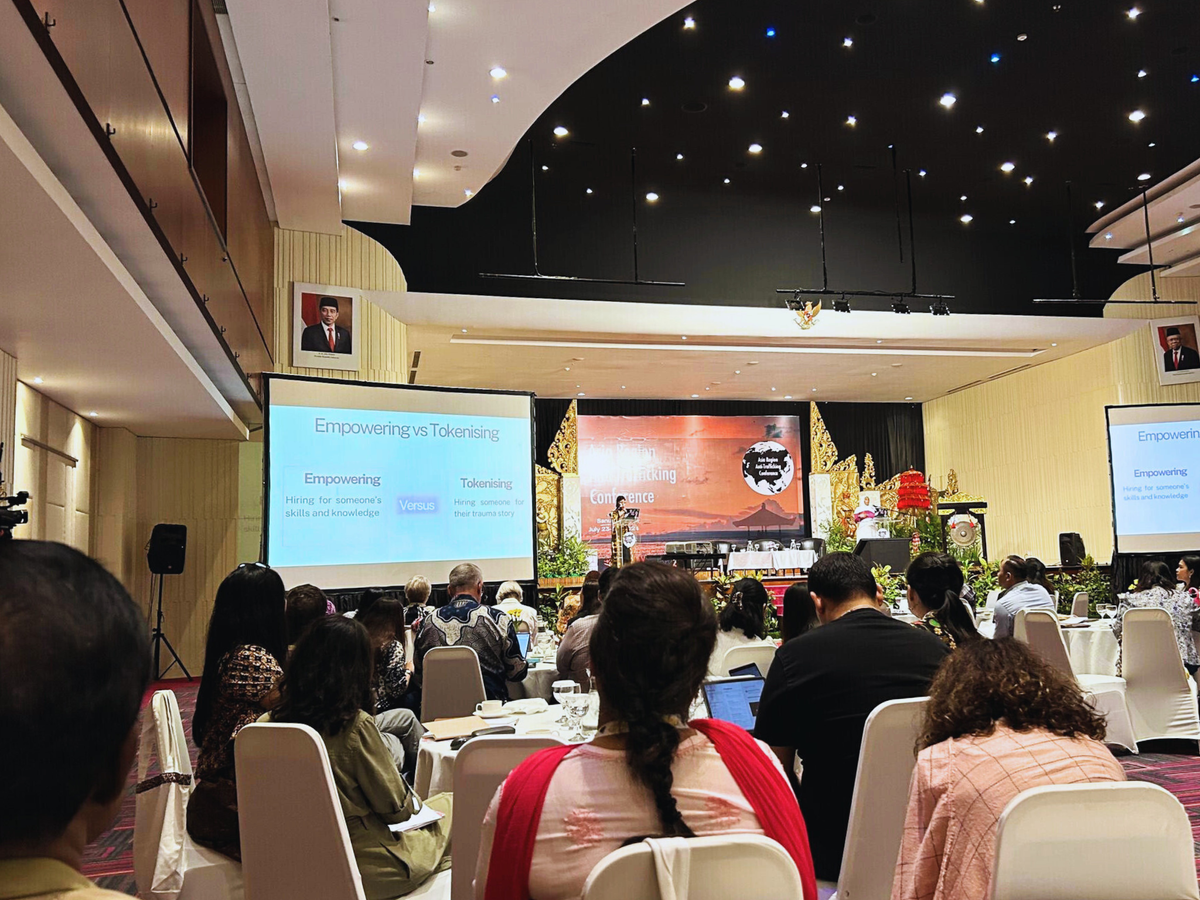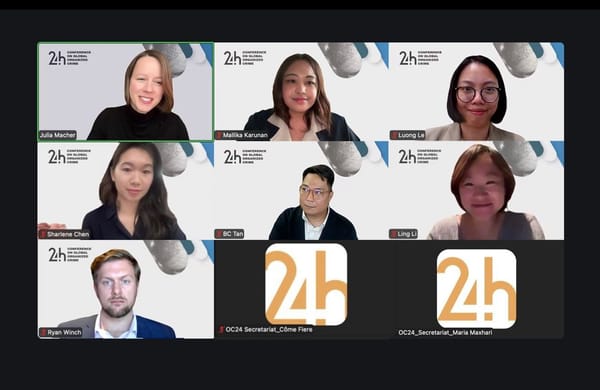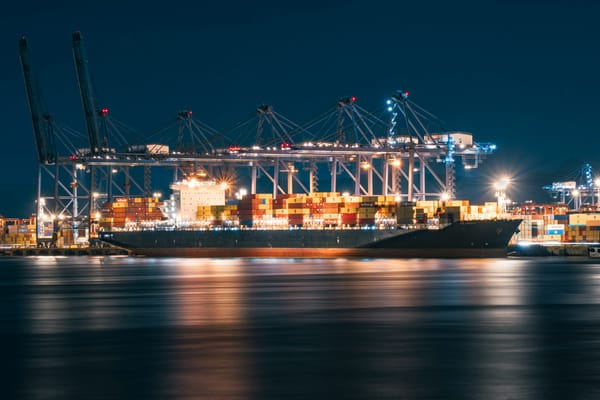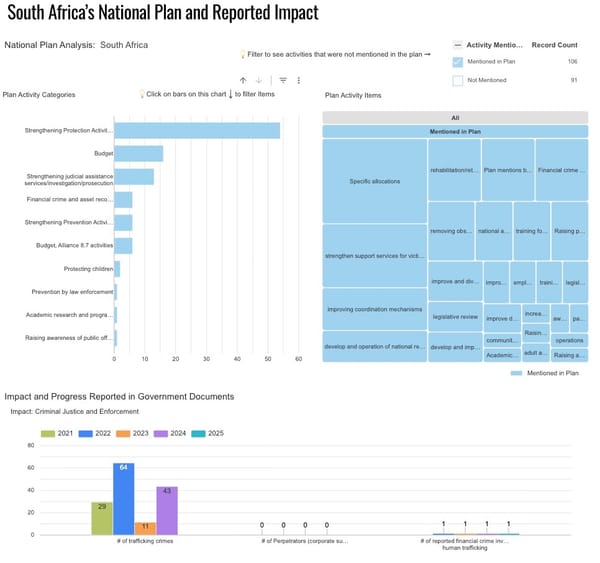Colonial mindsets must be examined before localization can be truly realized

Speakers at this year’s ARAT summit emphasize the value of local networks, MWA’s latest report highlights the exploitation of Sierra Leonean women in Lebanon under the kafala system, and IOM Nepal formalizes the MBHR Asia initiative to enhance migrant workers' rights and promote ethical recruitment.
Panelists at this year’s Asia Region Anti-Trafficking (ARAT) Conference, which was held in Bali at the end of July, highlighted the importance of localization for the future of anti-trafficking work, and in particular the need for a shift in global power dynamics towards grassroots organizations, as well as the establishment of local coalitions and networks to address trafficking issues.
In recent years there has been a shift towards the empowerment of communities, including USAID’s localization agenda, which aims to direct a quarter of its funding directly to local partners by 2025 and create space within at least half of USAID programs for local actors to exercise leadership by 2030. However, to make this transition work in practice requires a genuine shift in power dynamics, speakers noted, with some advocating for the “decolonization” of the movement. Systemic issues such as racism, sexism, white privilege, power and control are still prevalent, they said, along with the idea that white westerners have a better understanding of how to fix a country’s issues than the inhabitants of those countries themselves. This requires an examination of the mindsets and biases within the sector, however uncomfortable this might be, and complex questions need to be asked.
Attendees also discussed the way in which privilege – coming from the Global North, being fluent in English, attending university and, most importantly, having access to funding – often leads to positions of power and authority within the anti-trafficking sector. However, in the Global South, where English is not the first language for many in the movement, there are limited opportunities and limited to no funding access, panelists observed. In the past two to three decades, the gap between those in power and those in the field has failed to improve and, by some measures, has worsened, leading many in the movement to call for greater localization which, they say, would ultimately make the anti-trafficking sector more effective and sustainable.
The establishment of greater numbers of networks, which could apply collective leverage to more effectively advocate for prevention and protection measures, is a crucial strategy in addressing trafficking on a national, regional and global scale, speakers said. Many successes of the past 20 years have been the result of coalition and network activity, they observed, describing such efforts as the most effective way in which to reduce human trafficking. Groups themselves also find “respite” and a sense of safety in numbers within coalitions – advocacy efforts can be a huge challenge for single organizations, especially if they go against government frameworks and practices.
The potential impacts of coalitions include the development of national referral mechanisms, the development of case management processes and collective case management, a trust-based network in which harmful practices can be called out, the mapping and tracking of resources, and collective advocacy on a scale that offers greater protection and gives a more prominent voice to grassroots groups.
The conference, which was held over three days, featured nearly 40 guest speakers and focused on themes including Organizational Development & Capacity Building – providing individuals and organizations with practical tools, resources, and knowledge for professional growth; Current Trends & Research in the Region – equipping attendees with up-to-date research from the anti-trafficking sector and information about the developing trafficking trends within the region; Survivor Inclusion – prioritizing the role of survivors of trafficking in the movement and ensuring they retain a prominent place as contributors both on stage and behind the scenes; and Collaboration & Networking – cultivating a space where relationships can be forged and strengthened for the benefit of the movement and the people in it.
With thanks to Kamal Raj, founder and director of Cross Global, for his contributions to this feature.
Here’s a round-up of other noteworthy news and initiatives:
Cambodia has rolled out a new five-year plan (2024-2028) to combat human trafficking, emphasizing improved law enforcement and digital literacy. Under this strategy, the National Committee for Counter Trafficking in Persons (NCCT) aims to enhance reporting systems and address online trafficking challenges as part of its continued efforts.
IOM Nepal has formalized the MBHR Asia initiative to enhance migrant workers' rights and promote ethical recruitment in Nepal and other key Asian countries. Supported by the EU and Sweden, this program aligns with Nepal's National Action Plan on Business and Human Rights, aiming to improve labour migration governance and corporate responsibility.
MWA's newest report from its In Focus research series examines the hardships faced by Sierra Leonean women migrating to Lebanon, focusing on how the Kafala system exploits their pre-existing vulnerabilities and systemic neglect. The report highlights how the economic and political crisis in Lebanon between 2018 and 2022 has exacerbated the precarious conditions for migrant domestic workers.
Unions are campaigning against Mauritius' recent amendment to the Private Recruitment Agencies Act, which introduces "labour contractors" for migrant workers. They argue that these changes will worsen exploitation, reduce wages, and exempt employers from contributing to workers' social protections.
This interview features the Co-founder and Executive Director of the Candle of Hope Foundation, who discusses their work supporting migrants and trafficking survivors in Kenya and Somalia, addressing gender-based violence and economic challenges, and their collaboration with the Better Migration Management Programme.
India's External Affairs Minister highlighted the urgent need for international collaboration to combat cyber scams and trafficking in Southeast Asia during recent diplomatic meetings, emphasizing that robust measures are crucial for addressing these growing threats which have led to significant financial losses and human trafficking of Indian nationals.
This blog post examines the overlap between child marriage and human trafficking in Southeast Asia, the challenges involved for law enforcement, the judicial system, and victim protection, and the development of new guidance to address the issue, supported by ASEAN-ACT.
Join the Global Initiative for a webinar on August 7th, where they'll explore key findings from an upcoming report on labour exploitation in the Western Balkans, including the most vulnerable sectors and affected groups, gender disparities, and recommendations for addressing the issue through institutional, civil society, and media efforts.




